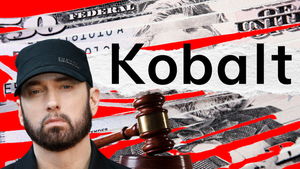Kobalt has confirmed it will appeal a ruling in the US courts last month that said it should cover legal costs incurred by Spotify in relation to the streaming service’s copyright battle with Eminem publisher Eight Mile Style. Last week the judge in the case declined to reconsider her previous ruling on the matter but cleared the way for an appeal.
Explaining recent events, Kobalt says in a statement, “On Thursday of last week, Kobalt filed a motion in the Eight Mile Style litigation, challenging and seeking to reverse the court’s ruling that it is liable on an indemnity to Spotify for having to defend the case, as clear error. Kobalt had alternatively asked for permission to seek an immediate appeal of that ruling to the Sixth Circuit Court Of Appeals".
Although the ruling was not reversed, “the court granted Kobalt’s motion to certify an interlocutory appeal of the indemnity ruling”, the music company’s statement continues.
An ‘interlocutory appeal’ occurs when a ruling is taken to an appeals court even though some aspects of the dispute remain unresolved in the lower court. In this case it’s how much money Kobalt should pay Spotify that remains unresolved. An interlocutory appeal needs to be approved by the judge in the lower court.
Eight Mile Style sued Spotify for failing to properly license the mechanical rights in Eminem’s songs within the US in the era before the creation of the MLC collecting society. Kobalt got pulled into the litigation because it provided rights administration services to Eight Mile Style.
Spotify had a 2016 licensing agreement with Kobalt that, it said, incorrectly implied it covered the mechanical rights in Eminem’s songs. That licence in theory granted “mechanical licensing rights to all compositions” that Kobalt administered. But, it turned out, not Eminem’s songs, even though it administered those rights.
As a result of that confusion, Spotify said Kobalt should indemnify it for the costs incurred fighting the Eight Mile Style litigation. Judge Aleta A Trauger agreed and Spotify put in a motion to have Kobalt cover some of its legal costs.
For its part, Kobalt argued that Spotify’s claim for indemnity was based on a misreading of the 2016 agreement and a misunderstanding of industry practice. In last week’s court filing, it also said that the precedent set by Trauger’s ruling on this part of the litigation would put “burdensome” obligations onto music publishers that are issuing licences to digital platforms.
These are all arguments it will presumably revisit in its filing with the Sixth Circuit appeals court. Its statement on the dispute concludes by noting that Trauger’s ruling last week “recognised there are substantial grounds for differing opinions on the indemnity issue”. To that end, “Kobalt is confident in its position that the indemnity ruling is simply incorrect, and looks forward to having the opportunity to present its arguments to the appellate court to right that ruling”.

